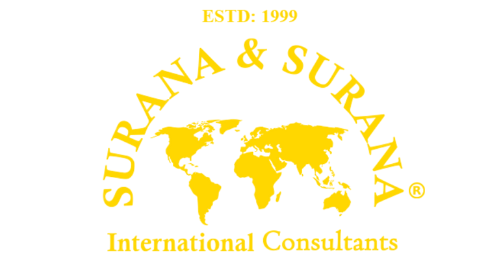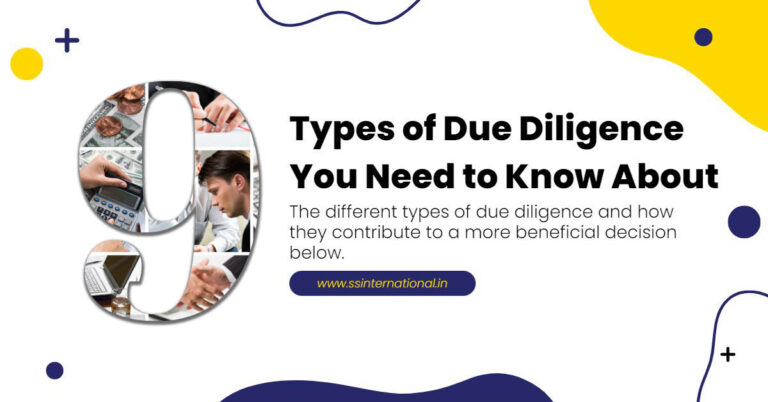Introduction to the Concept of Green-Washing
In recent times, there is an increase in green consumerism with people wanting brands that embrace purpose and sustainability. There is an impetus to buy products which are green and beneficial to health too. This has led to the corporates marketing the so called green products and labels so as to be abreast with the current trends and accordingly line the needs of the consumers with their own profit targets.
However, those green labels or natural brandings might be a mere farce by the corporates to stimulate sales and profitability, thereby indulging in the practice of what is commonly known as “green-washing”. A term coined in the 1980s, greenwashing refers to the phenomenon of eco-exaggeration used to lead customers to believe that a company’s products are more environment-friendly than they actually are.
Terrachoice, a North American environmental marketing consultancy classified seven sins of green-washing in its green-washing report of 2009. These sins are as follows:
- Sin of hidden trade-off – committed when the marketer depicts only a limited range of qualities to divert the attention of consumers from other significantly negative environmental impacts.
- Sin of no proof – committed when the marketer makes claims which cannot be verified through conveniently available information.
- Sin of vagueness – committed by the marketer when he uses broad misleading words like “pure”, “natural”, “organic”, “eco-friendly” etc.
- Sin of irrelevance – committed when the marketer makes a green claim which is either insignificant or made under regulatory pressure.
- Sin of lesser of two evils – committed by the marketer when he makes a true claim in a particular group but has an overall hazardous impact on the environment.
- Sin of fibbing – committed by the marketer make untrue green claim.
- Sin of worshipping false labels – committed by the marketer when he demonstrates the environment friendliness of the product through fake labels and certificates
Infamous Instances of Green-Washing Phenomenon
Volkswagen Emission scandal
A classic example of green-washing phenomenon is the “Volkswagen Emission scandal”. In 2015, Volkswagen marketed their cars as green and emission free and got it approved in government emission test. But the reality was far from it. It was found that many Volkswagen cars being sold had a “defeat device” or software in diesel engines that could detect when they were being tested, changing the performance accordingly to improve results[1].
H&M’s Conscious Collection
The Swedish fashion giant H&M’s Conscious Collection, made with sustainable materials like organic cotton, recycled polyester and Tencel, came under fire from the Norwegian Consumer Authority which accused it of misleading customers with insufficient information about the sustainable nature of its collection.
Nestlé’s Packaging claims
Nestlé, the world’s largest food and beverage company, too, attracted criticism in 2018, when it announced its vision to make 100 per cent of its packaging recyclable or reusable by 2025. Environmental watchdog, Greenpeace, was quick to point out that material substitution was not enough to stop pollution from single-use plastics and accused Nestlé’s promise of lacking transparency, clear targets, and significant investment.
Royal Dutch Shell
Oil giant ‘Royal Dutch Shell’ has been under the scanner for its green-washing campaigns and has been repeatedly penalised for it. One of its famous ad campaign -“Don’t throw anything away- there is no away” emphasizing the claim of growing flowers out of CO2 emissions has been heavily criticised for it being deceptive and fraudulent.
These instances depict that greenwashing is indeed an impediment in the path to fulfil the Environment and Social responsibility practices which has been advocated by legislations and judiciaries worldwide. To make matters worse, there are only a handful of legislations around the world which identify “green-washing by corporates” as an act of misleading advertisement. However, these legislations fail to provide a complete protection against such misrepresentation or eco-exaggeration by corporates. Greenwashing is not only a violation against the environment but also, an offence amounting to duping of the investors and stakeholders, defrauding consumers, conspiring to commit crime and manipulation of share prices (or in extreme situations may result in insider trading).
Who can be held liable for Green-Washing– Corporates or Director?
A Company is deemed to be an entity having a separate legal existence from the individuals, primarily the Board of Directors, who own and manage the day to day activities of the entity. In terms of liability for Green-washing, no specific legislation has been passed to attach liability on corporates for green-washing. There are merely indirect references such as recently, Securities and Exchange Board of India (SEBI) set up an advisory committee on Environmental, Social, and Governance (ESG) matters whereby in its reference, it has loosely referred to “continuous enhancement of disclosures specific to ESG Schemes of mutual funds with particular focus on mitigation of risks of mis-selling and green-washing.”[2] Further, the Advertising Standards Council of India (ASCI) in its Code requires advertisements to be “legal, decent, honest and truthful”. Thus, green-washing claims to some extent can be covered under the ASCI guidelines of false advertisement claims not supported by evidence.[3] However, the claim would not typically resolve the deep rooted issue of preventing companies from deceiving the consumers into buying products which are not environment friendly.
So far as Companies Act, 2013 is concerned, Section 166(2) of the said Act provides for the duty of director towards the environment and any violation attracts fine of one lakh on the director. However, monetary penalty as stipulated in the provision may not be able to have far reaching effect on the directors functioning under the garb of the Company to prevent green-washing.
There lacks a robust legislative mechanism to hold the corporates and/or directors liable. In such circumstances, it is important that a clear framework is developed to address the problem.
How courts and enforcement agencies can curb green-washing in the absence of firm legislative action?
While the judiciary and enforcement agencies, even in the absence of affirmative legislative actions, have on several occasions come down heavily upon those who have damaged the environment, a similar mechanism can also be implemented by the said authorities against green-washing till effective legislation is brought into effect.
Some of the methods adopted by the judiciary and enforcement agencies include the following;
Doctrine of Absolute Liability
- The doctrine of ‘absolute liability’ was developed by the Indian Judiciary in the 1980s as a reaction to the devastation caused by infamous industrial disasters i.e., the Bhopal Gas Tragedy and Oleum Gas Leak.
- The doctrine attaches absolute liability on corporates/individuals for any and all damage caused by its activities, irrespective of the intent of the corporate/individual. Liability will arise even in cases where there has been accidental release of effluents or toxic gas.
- There is no defence or exception to the absolute liability rule. This not only widens the scope of liability of the Company but also of its board and officers who have on several occasions been held vicariously liable for environmental harm caused by the Company.
Rise in the imposition of punitive penalties
- With respect to environmental damages and violation, the Apex Court has laid down that the quantum of compensation should be directly proportional to the capacity and magnitude of the entity which has defaulted.
- To cite an instance, during the (global) ‘Volkswagen emission scandal’ in 2019, the National Green Tribunal, in a re-assessment of the inquiry into the matter, enhanced the penalty on Volkswagen from INR 1 billion to INR 5 billion for deterrent value.
Personal liability being fixed
- Judiciary and enforcement agencies have been vigilant in bringing defaulters to task not only under the specific environment law but has also attached criminal liability on individuals of the Company under the Indian Penal Code, 1860.
- For instance, CEO and senior personnel (including 2 foreign nationals) of LG Polymers were arrested for negligence under the Indian Penal Code, following a gas leak at the Company plant in Vishakhapatnam on account of poor safety protocols and breakdown of emergency response procedures.
- Furthermore, the National Green Tribunal had directed the Haryana State Pollution Control Board to prosecute senior officers of Indian Oil Corporation Limited for prevention of the crimes committed under water and air pollution laws.
- In addition to the above, the Supreme Court has laid down that even where litigation proceedings are prolonged for several years, this would not save the senior management and directors of the defaulter company from prosecution.
More robust disclosure
- A guideline has been released by the Indian Ministry of Corporate Affairs (“MCA”) which highlights responsible business conduct and seeks businesses to report such conduct. It has been termed as the Business Responsibility and Sustainability Report or “BRSR”.
- The BRSR reporting format requires top 1000 listed companies to disclose to the securities regulator commencing from FY 2021-2022 on key ESG aspects including comprehensive disclosures on initiatives to address global environmental issues, low carbon economy projects, emissions/waste limits, carbon emissions, solid waste management practices, strategies to reduce usage of hazardous and toxic chemicals in products, environment impact assessment of operations etc.
- A more concise reporting format has also been released for voluntary adoption by smaller unlisted companies, with the aim of encouraging more companies to take up sustainability reporting.
- The ultimate intention of the government is to use the information captured through these filings to develop a ‘Business Responsibility Sustainability Index’ which will be relied on to give procurement preference to companies that demonstrate responsible business conduct.
Recommendation: How policy makers can curb the trap of green-washing?
In a nutshell, conserving the environment is of utmost importance and corporations are using green-washing as a deceptive means to earn profits. The current situation demands for immediate and affirmative legislative action. In order to curb this practice, it is pertinent that there are mechanisms in place which would help detect green-washing and help the authorities hold the defaulters liable.
Some of the mechanisms which can be adopted by policy makers include the following; [4]
- Compulsory annual disclosure of firm level environmental performance metrics.
- Compulsory disclosure of product environmental characteristics in details.
- Create new & clear eco labels for a broader range of product characteristics, while standardizing to reduce consumer confusion.
- Stricter governmental rules & actions to explicitly communicate types of actions that will be considered for violation of green washing.
- Issue Green Guide for consumer for better understanding of green terminology.
- Facilitate adoption of uniform international standards for advertising and environmental disclosure regulation.
- Promote appointment of a separate class of directors, who shall be responsible for looking into the sustainability practices of their respective company and its practices towards conservation of environment.
Further, certain practices can also be adopted by Corporates to ensure that employees refrain from green-washing;
- Increase centralization of decisions regarding environmental communication.
- Key managerial personnels’ must emphasize on ethical, honest behavior regarding green washing.
- Suitably reward employees who report green-washing.
- Punish employees involved in abetting and practicing green washing.
[1] https://www.bbc.com/news/business-34324772
[2] https://www.outlookindia.com/business/beware-of-greenwashing-news-197849.
[3] https://www.legal500.com/developments/thought-leadership/deception-of-greenwashing/
[4] http://cercenvis.nic.in/PDF/environmentclaims-case.pdf.



